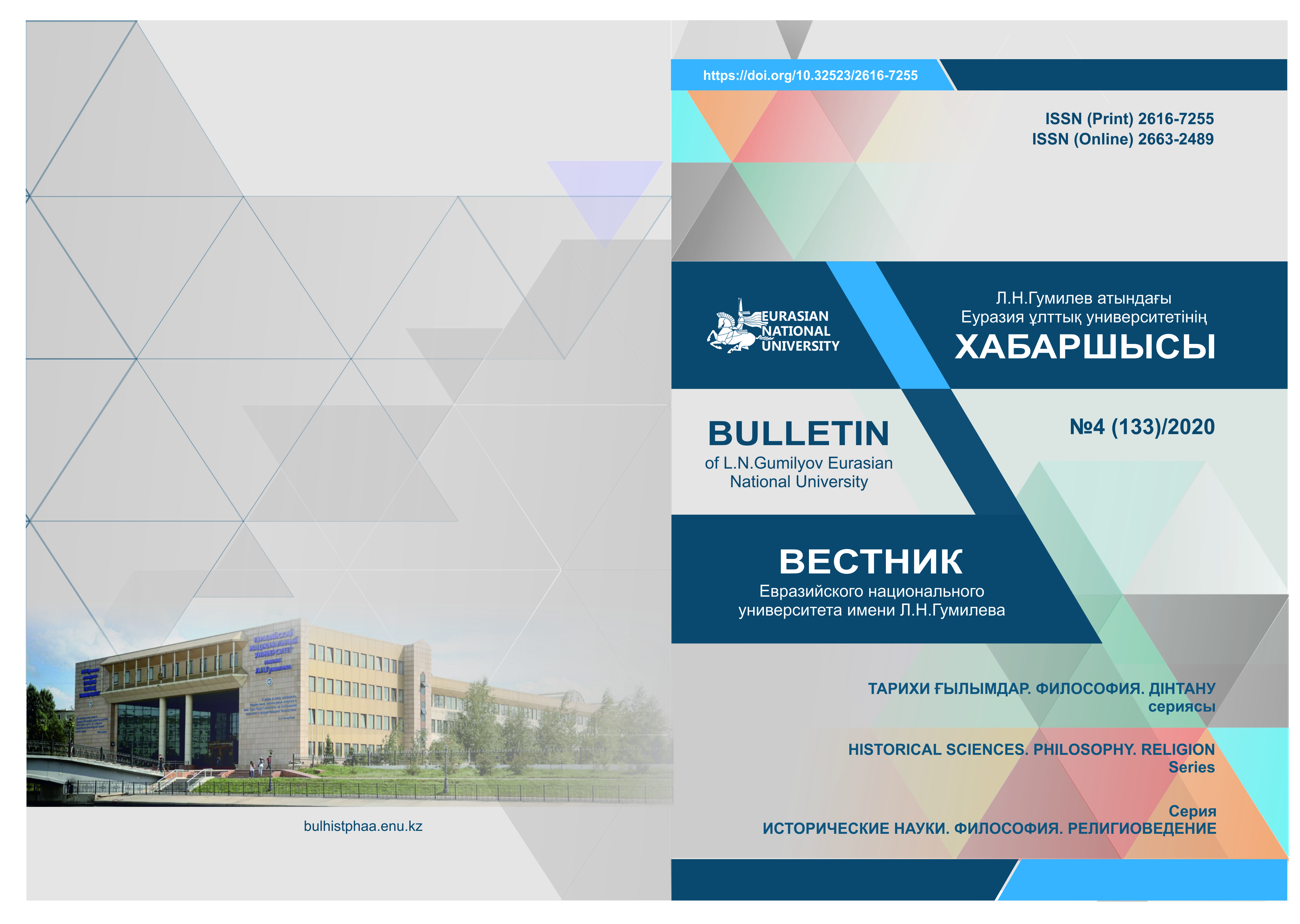Deportation Everyday Life: sources and materials (in case of East Kazakhstan)
Views: 173 / PDF downloads: 310
DOI:
https://doi.org/10.32523/2616-7255-2020-133-4-42-62Keywords:
archival documents; etnos; deportation; Chechens; Germans; special settlement; East Kazakhstan region;Abstract
Based on the studied documentary sources of the Central State Archives and the Archives of the President of the Republic of Kazakhstan (Almaty), regional archives of the East Kazakhstan (Ust-Kamenogorsk, Semey, Ayaguz), where is a whole layer of documents on the topic under consideration, an objective picture of everyday life peoples deported to the territory of the East Kazakhstan: Germans, Chechens, Ingush, etc. are recreated. In the late 1930s, the deported peoples were sent to remote areas for special settlements (hence the name "special settlers", "special settlers"). Kazakhstan was also included among such territories. Whole peoples forcibly evicted from their homes formally retained the status of full-fledged Soviet citizens, but were deprived of the right of movement and free choice of residence. The documents contained in the archives make it possible to reveal various aspects of the topic under consideration, showing the daily life of the special settlers: the difficulties and problems they encountered in the course of resettlement and placement in a new place. The systematization of the identified sources made it possible to determine the number and resettlement of the special settlers, their household and labor structure. Analysis of the documents showed that the placement of the special settlers in the new place was difficult, which led to negative social and demographic consequences. The situation of the deported peoples, in spite of the measures taken for the household and labor arrangement, was difficult. The deportation of peoples led to irreparable damage to the material and spiritual culture of ethnic groups, doomed people to a low social status and standard of living. However, thanks to the support of the local population, people were able not only to survive, but also by adapting to new conditions, to contribute to the economic development of the region at this difficult time. The article provides a thorough and detailed analysis of the sources of the regional archive, which made it possible to solve the tasks, set in the work and draw appropriate conclusions based on the analysis.
Downloads

Downloads
Published
How to Cite
Issue
Section
License
Copyright (c) 2022 Bulletin of L.N. Gumilyov Eurasian National University. Historical Sciences. Philosophy. Religious studies series.

This work is licensed under a Creative Commons Attribution-NonCommercial 4.0 International License.







